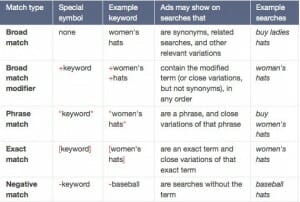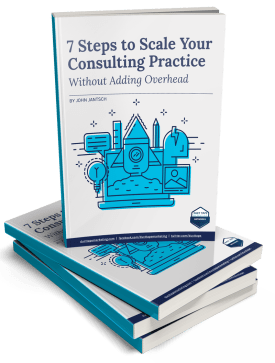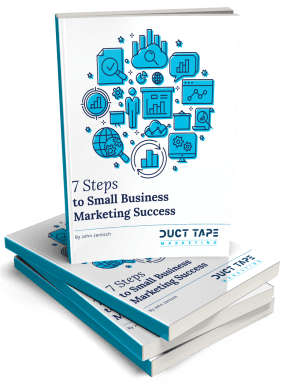It’s guest post day here at Duct Tape Marketing and today’s guest post is from Adam Lundquist– Enjoy!

Do you ever feel like your small business would get a better return on investment by literally lighting your money on fire than using Google AdWords?
You began your AdWords campaign for your small business with high hopes and launched it, excited to fulfill orders from your new customers. Except those orders never came.
You attempted to fix it with different keywords, ad copy, and the newest techniques from self-proclaimed “experts”. However, with each new “fix” you spent more of your time and money – but added no new revenue. You are low on advertising budget and even lower on patience.
If this is your experience then you are not alone, almost all small businesses make costly mistakes when they start using AdWords. This is because the AdWords system penalizes you for mistakes you do not even know you are making. Even worse, in some cases AdWords even encourages these mistakes. The more you mistakes you make the more money AdWords earns from extra clicks you don’t want.
This article helps you identify these mistakes – and more importantly learn how to correct them to put you on the path to AdWords profit.
Mistake One: Keywords In Broad Match
AdWords is set by default to have your keywords in broad match, and this causes your keywords to match for a huge variety of searches you never intended.
For example, if you are a pizza store in Philadelphia and use Google AdWords, you might bid on the keyword Pizza delivery in Philadelphia. You assume that a hungry user has to type in the phrase Pizza delivery in Philadelphia into Google to view your ad and order your delicious pie. However, that is not the case and it costs you money!
By default your ads shows for a huge variety of searches that you never intended. If not changed from default, your keyword Pizza delivery in Philadelphia actually signals to Google to show your ad for searches such as how to cook a frozen pizza, and when clicked, you still have to pay for that irrelevant click.
The discrepancy between the searches you intend your ad to show for and the actually searches that trigger your ad is because the AdWords system uses different match types for keywords. There are four main match types: broad, broad match modifier, phrase, and exact. The different match types allow you (the small business advertiser) to match for a broader or narrower range of actual search queries that users type in. Broad is (as it sounds) the most broad in terms of what searches trigger your ad, and it is ALWAYS set by default in Google AdWords. This means that it is at Google’s discretion to decide that a user’s search is “close enough” to your keyword. Since Google gets paid on every click, they have a broad view of what is close enough.
When beginning your account change the match type of your keywords. Make sure your keywords are either in either phrase match or broad match modifier. These match types ensure that the words you use as your keywords have to be the ones the users searched for in Google. Here is a handy chart to visually see the differences as well as the special symbols that change the match type:

Mistake Two: The Wrong Industry For An Immediate Sale
A common mistake when beginning AdWords is to immediately go for the sale. In some industries an immediate sale makes sense, but in many industries users are not ready to make the purchase at first interaction. In these industries, the user needs to trust your company before they even consider making the purchase. If the user clicks on an ad and is taken to a site where the only option is a sale, if the user isn’t ready to purchase they have no choice but to leave your site without providing your business any valuable data.
Rather than throw money into the AdWords abyss a, try a different approach. A better way to run AdWords in these industries is to think of a longer sales cycle, and change your goal (called a conversion) from getting an immediate sale to getting their contact information. You can use your ads to send users to a page that asks for their contact information in exchange for a small incentive, build trust by marketing to them via the email they provided, and finally sell to them when they are ready to make a purchase and already trust your company. Incentives can include:
- Free eBooks
- Samples
- Free consultations
This approach works best for industries where trust is key, such as an expensive physical product or a long-term service provider.
Mistake Three: Sending Users To The Homepage
Once you decide on your goals in AdWords, you need to send users to a page that matches the users search and makes it as easy as possible for them to convert. All too often I see new AdWords campaigns send users to the home page. The homepage doesn’t match the users search and conversions are unlikely to happen. A homepage often has a variety of items and is designed for navigation deeper into the site rather than a conversion.
For example, let’s say you are in the right industry for an immediate sale, like a winter clothing retailer that sells winter hats amongst other items. If you are just beginning to use AdWords you may send all of the users to your generic homepage. If you buy the keyword winter hats and the user is sent to the homepage, which is crowded with all of your items, the user has to search to find the specific sales page for winter hats. This means the user had to spend additional mental energy to search more through your website and click again. The majority of users will not expend this mental energy– they leave your page without making a purchase.
You want to make it as easy and friction-less as possible for the user to convert by sending them to specific high-converting sales pages. If the user type in winter hats send them to the exact sales page for winter hats.
What is your biggest AdWords obstacle?
If you liked this post, check out our Small Business Guide to Paid Search.
 Adam Lundquist (@adamlundquist) is the CEO of Nerds Do It Better, an Internet advertising agency for small businesses. He has been featured in The Harvard Gazette, Search Engine Journal, KISSmetrics, WordStream, PPC Hero, Certified Knowledge, Mtv, Vh1, Sports Illustrated, and Moz. Visit his site today for a free eBook: Make Internet Advertising Work For Your Small Business. 5 Steps To Find, Cultivate and Market To New Customers.
Adam Lundquist (@adamlundquist) is the CEO of Nerds Do It Better, an Internet advertising agency for small businesses. He has been featured in The Harvard Gazette, Search Engine Journal, KISSmetrics, WordStream, PPC Hero, Certified Knowledge, Mtv, Vh1, Sports Illustrated, and Moz. Visit his site today for a free eBook: Make Internet Advertising Work For Your Small Business. 5 Steps To Find, Cultivate and Market To New Customers.



